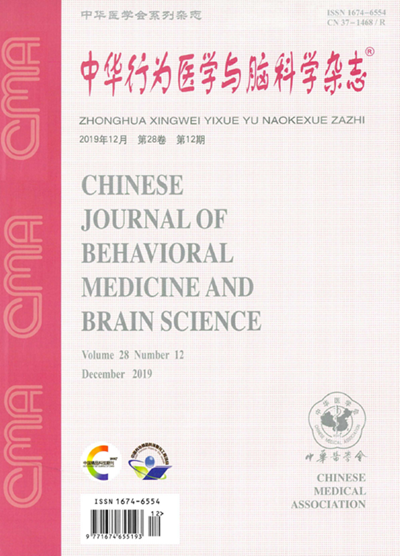The relationship between the dark triad and guilt proneness: the mediating role of basic psychological needs satisfaction
引用次数: 2
Abstract
Objective To explore the relationship between the dark triad, basic psychological needs satisfaction and guilty proneness. Methods Totally 595 college students were randomly selected from Zhengzhou University.They were tested with the dirty dozen(DD), the balanced measure of psychological needs scale(BMPN) and guilt-proneness-5(GP-5). SPSS 22.0 and AMOS 21.0 were used for data analysis, including descriptive analysis, correlation analysis and confirmatory factor analysis. Bootstrap measure was used for mediating effect test. Results (1)The correlation analysis showed that the dark triad (29(21, 37)), Machiavellianism (4(4, 8)) and psychopathy(5(4, 9)) were negatively correlated with guilty proneness (20(16, 23)), and the correlation coefficients were -0.10, -0.22 and -0.18 respectively(all P 0.01). The satisfaction of basic psychological needs (56(54, 60)) was positively correlated with guilty proneness (r=0.31, P<0.01). (2)The relationship between the dark triad and guilty proneness was partially mediated by basic psychological needs satisfaction, and the mediating effect accounted for 62.96%. Conclusion The dark triad influences guilty proneness through basic psychological needs satisfaction. Key words: The dark triad; Machiavellianism; Psychopathy; Guilty proneness; Basic psychological needs satisfaction黑暗三合会与内疚倾向的关系:基本心理需求满足的中介作用
目的探讨黑暗三合会、基本心理需求满足与犯罪倾向的关系。方法随机抽取郑州大学595名在校大学生,采用脏打量表(DD)、心理需求量表(BMPN)和内疚倾向量表(GP-5)对其进行测试。采用SPSS 22.0和AMOS 21.0进行数据分析,包括描述性分析、相关性分析和验证性因素分析。采用Bootstrap方法进行中介效应测试。结果(1)相关分析表明,黑暗三合会(29(21,37))、马基雅维利主义(4(4,8))和精神病(5(4,9))与有罪倾向呈负相关(20(16,23)),相关系数为-0.10,基本心理需求满意度(56(54,60))与有罪倾向呈正相关(r=0.31,P<0.01),结论黑暗三合会通过基本心理需求满足影响犯罪倾向。关键词:黑暗三和弦;马基雅维利主义;精神病;有罪倾向;基本心理需求满足
本文章由计算机程序翻译,如有差异,请以英文原文为准。
求助全文
约1分钟内获得全文
求助全文
来源期刊
自引率
0.00%
发文量
8131
期刊介绍:
"Chinese Journal of Behavioral Medicine and Brain Science" (CN 37-1468/R, ISSN 1674-6554) is a national academic journal under the supervision of the National Health Commission, sponsored by the Chinese Medical Association and Jining Medical College. The journal was founded in June 1992 and was formerly known as "Chinese Journal of Behavioral Medicine" (1992-1993) and "Chinese Behavioral Medical Science" (1994-2008). In 2009, it was renamed "Chinese Journal of Behavioral Medicine and Brain Science" with the approval of the State Administration of Press, Publication, Radio, Film and Television.
The purpose of "Chinese Journal of Behavioral Medicine and Brain Science" is to implement the health and health policies of the Party and the State, implement the principle of combining theory with practice and popularization and improvement, and reflect the major progress in the theory and practical application of behavioral medicine and brain science in my country. It publishes academic papers and scientific research results in the field of behavioral medicine and brain science in my country, and has columns such as monographs/reviews, basic research, clinical research, health prevention, methods and techniques, psychological behavior and evaluation, and systematic evaluation.

 求助内容:
求助内容: 应助结果提醒方式:
应助结果提醒方式:


